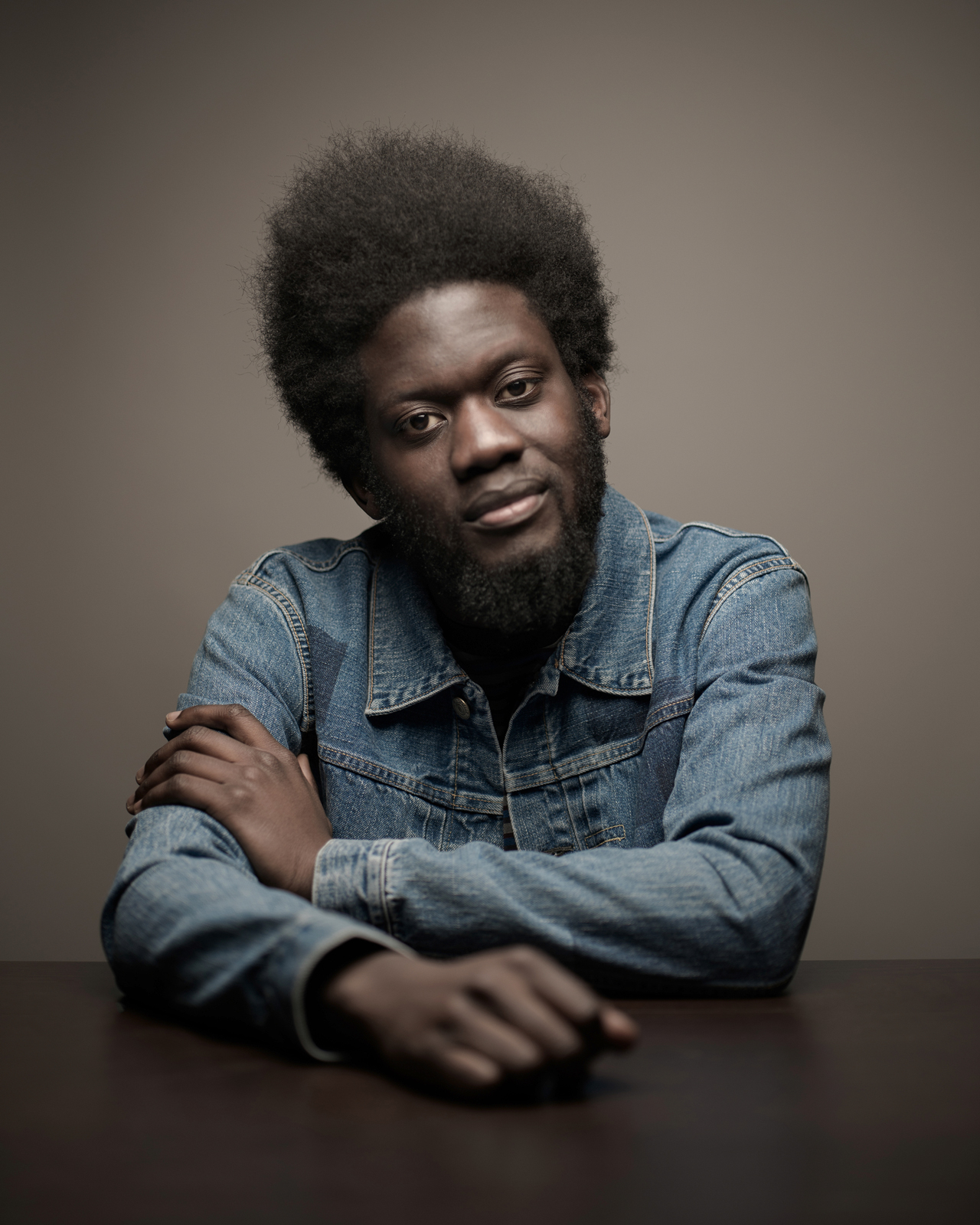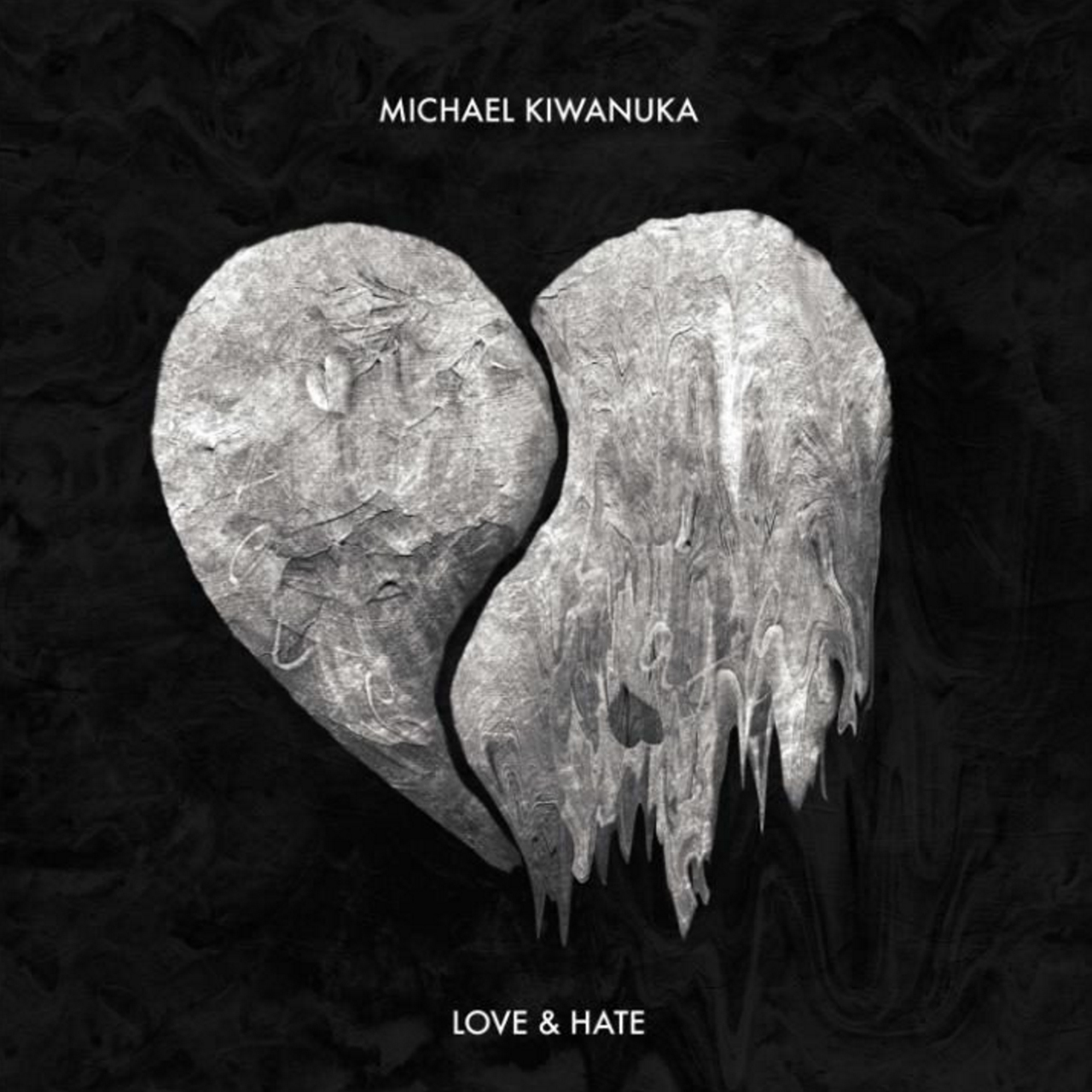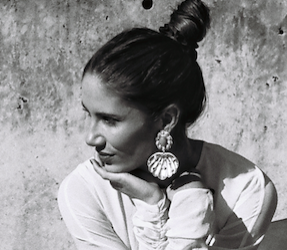News feed

Credit: Universal Music
British musician Michael Kiwanuka didn’t set out to have a number one album. He didn’t embark on a music career with the world’s political and social agendas front of mind either. But it seems the 29-year-old singer-songwriter has struck a (musical) chord with people across the globe; his tracks inadvertently reflecting the uncertain, terrifying and, at times, racist world we now live in. Today, we’re talking to Kiwanuka in the wake of his second album, Love and Hate, going number one in the UK. And for someone with such powerful and realistic views, he’s a placid, beautiful man to meet. Here we chatted love, music, Brexit, Donald Trump, Kanye West and Alton Sterling to name but a few. Oh, and there was that “cool” question that stunned the musician.
GRAZIA: This is your third time in Australia. This time though, its kind of a little more special because your album went to number one in the U.K while you were here. Congratulations!
Michael: “Thanks very much. Yeah, it’s blown my mind. It’s a dream come true.”
Here you are, a young retro soul minor with ten and a half thousand Instagram followers, and you’ve beaten out the likes of Adele. How are you feeling at the moment?
“It feels good. You know, it’s strange because I’m probably the furthest away I could be from England but it feels amazing. The album took a while to make, it’s been a journey so it feels like a full circle. It’s an amazing way to finish and though it’s been a tough road at times, I’m trying to soak it all up while it’s still number one!”
You’ve supported Adele on tour in the past, has she reached out to say congratulations?
“She hasn’t reached out to congratulate me for number one but she has been really supportive with my music. Like, the first single when it came out in March, she wrote some really nice words about the music and said that she was really into the song and she’s always been really supportive and encouraging. It’s amazing to have that endorsement from someone so good.”
Videography and editing: Claudia Sutiono
Definitely. And you come from humble beginnings – your dad was an electronics engineer and your mum a cleaner and your family didn’t even own a car…
“That’s true. We kind of walked around and would catch the bus every day.”
So how did your parents take the news that their son has a number one album? What was that phone call like?
“They just couldn’t believe it. My mum was just so excited and, like, climbing up the walls. They hadn’t seemed that excited for years. They were just really proud. You know, they’ve always supported my music and supported me playing my guitar, whatever kind of guise of music I’ve been into. It’s just as much as a victory for them as it is for me.”

The journey to this album though has been challenging at times. You took your music to recording labels and they were so specific about the changes they wanted to make or things they didn’t like. You struggled with this concept. How are you finding that experience now?
“It’s all so tough to get used to, and making anything is so subjective. Other people’s opinions and critiques take a little while to get used to. Well, definitely for me anyway. But I’ve learnt to grow some thicker skin. Sometimes you need that objective opinion to steer you in the right direction. I think there’s a balance you just learn of when to listen, and sometimes you learn to stick with it, and disagree politely. It’s a collaboration and is always going to be a push and pull but I’ve gotten more used to it now.”
Kanye West invited you to his Hawaiian studio, to, quote, “come up with some stuff and see if we like it.” It didn’t appear on his 2013 album Yeezus, but did you ever get any feedback from him?
“No, I didn’t get any feedback from him. I do remember when I was there, Kanye was really supportive and he’s a great artist; a true creator. And people like that, they create things so good and they really see the potential in a lot of other artists. I think at the time, I never really could believe I was there. He asked me to be intimate with my music so I think it was just too overwhelming. Looking back now, I realise he wants artists to do their thing, you know? He wasn’t descriptive of what I should be doing and I thought that was weird at the time but looking back now it was probably the reason why I was there. He liked what I was doing so he was like, ‘just do your own thing’. At the time, I was scared to be working with someone so good and someone so famous.
“[Kanye West] didn’t want me to be something else. Now I feel quite encouraged by him asking me into his studio.”
Well he might be calling you up again now with the success of Love And Hate…
“I hope so! I’d love to have another go, I’d love to work with him again. So if he allowed me, that’d be sweet.”
Being so young and naive, what was the pressure in that studio like?
“It was pretty scary for me. I got there and I just kind of got a mic and a computer and just got some beats that he’d been working on and he’d just say ‘yeah, do your thing’. One evening I went into the main studio and played what I had. But there was never a moment though where – I mean I was scared, it was nerve racking – he did anything to make me feel that way. That was all in my head. Kanye was really, really accommodating and everyone that I worked with was really sweet. It was definitely a good experience and it wasn’t like what you hear about him in the media. He was a bit mellow and really quiet, a hard working musician, you know? I’ve only got good things to say about that experience.”
He may sound outrageous at times but no one can question that man’s talent. What I really like about you is that you have some really interesting views on world issues; you have something to say. Your music is made up of a man contemplating troubled times, and if we look at today’s world we have political unrest and uncertainty with Brexit in the UK. We have terrorism in Europe. Donald Trump could potentially be the president of the free world. There’s shootings, there’s subsequent racism. Do you think the success of Love and Hate and Black Man in A White World is part due to the subject matter resonating with people right now?
“I’d say yes. When I was writing the music I wasn’t predicting anything like that.
“When I putting together this album, I wasn’t thinking about some of the events in America like the #BlackLivesMatter movement or the shootings. But it seems somehow, at the time of the music being released, all this stuff is happening in the world.”
“I’ve read comments about the album online, on Instagram and a lot of people have mentioned that the album seems to fit with the times today which to me is incredibly flattering and a high compliment. I thought about that and how that could communicate, and I think that if you’re writing music and you’re existing at a time, then there’s going to be music that reflects what’s going on. I think music I’ve been inspired by reflected the times it was made too. The lyrics were poignant for the time those artists were living and that really inspired me and that’s what got me into music.
“Music is so powerful. It can move emotion, it can move people and inspire people to change. And that’s always been a part of me wanting to write songs; wanting to write songs to say stuff that I really felt, that was really present on my mind. I think if you do that, there’s a chance it could connect with people in relation to what’s happening in the world.”
Racism is a timeless issue, but then right now, it’s so timely. Black Man in a White World is about identity and individualism and you’ve spoken about how you always struggled with your identity and feeling comfortable with it. Considering racism does exist in this present world and is an acute focus of a larger conversation at the moment, do you still get hung up about it?
“Actually, no. You know, that song was almost like… I mean, I wrote it and started singing it to get over it. It was really about growing up and trying to find my place in life, whatever that means. I always wanted to relate to someone or something that was happening. Growing up, I wanted to be in a band, I would look at all the pictures and see what kind of people were in those bands and if I could relate to them. If there was someone I could relate to, it meant I could be a musician too. And I don’t know whether that’s a good or bad thing but that’s kind of how I worked. For what I wanted to do musically, or even just as a job, my taste was different to maybe what the stereotypes were for a young black dude. So I had to accept that it was different, that I was a bit different. So this song was just for me to get over it, that it doesn’t actually matter and if you fit in or not. You’ve just got to be yourself and you’ve just got to be okay with being yourself, that’s what’s exciting about life. Everyone’s different, and that’s what makes life exciting.”
How do you think something like Brexit then – which instigated segregation and racism with its slogan “let’s take our country back” – might affect a young person of colour?
“We like to feel like we belong somewhere. We like to feel like we have an identity in something, in a place or country or even the way we dress. It describes us and it’s a way of projecting who we are and we stick to that and it gives us confidence. It gives us meaning and love and purpose and whatever. And so Brexit to me, it was a cry for how people aren’t being listened to. I think the rhetoric the government used was a problem. They focused on immigration, a lot of people were voting to leave the EU for other reasons. It wasn’t just immigration. The rhetoric to ‘take the country back’ inspired that kind of thinking from the people. I think that was really irresponsible. That was very sad for me. That was something that really made me quite upset. It needs some serious sorting out.”
What do you hope that a young person of colour might feel when they listen your album?
“I hope someone of colour might feel encouraged, might feel happy to be themselves, to be who they are and treated as who they are. I hope anyone of any colour can feel that way about Black Man In A White World. That song, I didn’t want it to be divisive and it’s not like black power. It’s not meant to be an angry song either. Hopefully when people hear it they feel like it’s okay to be unique and true to who they are. And all those weird bits that we have about ourselves and what makes things so amazing.
“I always have this analogy of a football team or sports team. If everyone was to be a striker, the team would collapse. It’s when everyone fills their own individual roles, that’s when the team starts to shine and really develop and win games.”
“And everyone’s got their own roles, everyone’s different. That’s the whole point. You’ve got to do your own thing; we’re not meant to be the same as everyone else. I hope that when people hear the album, they immediately feel like ‘yeah man, I don’t need to just fit into a crowd’ and there might be a certain type of fashion that’s in but you don’t feel like you need to wear those kind of clothes so you just do your own thing and be like an outcast. It’s okay.”
In Love & Hate, you search for a world with no more pain, no more shame, no more misery. What does that world look like to you?
“Oh that’s a cool question.”
It’s a big one…
“It’s a big one. Maybe this sounds kind of floaty, but any time someone would describe what heaven looks like, that’s what that would be. I don’t know what that would look like physically, but I feel like there’s no pain, shame or misery in heaven so that’s what it would look like to me.”
Good answer. In times like now, we see artists like Beyoncé and Jay-Z reacting to issues in the news like, as we were saying before, the wrongful shooting of Alton Sterling recently. How powerful is music in conveying messages of hope at the moment?
“Music at the moment is powerful in conveying messages. It always has been but it’s quite exciting now. You know, a lot of scary things are happening in the world and it is terrifying. It’s not good, but at the same time on the other side, people are writing and singing about things that are affecting our world. It’s making young people conscious and it’s making people that listen to music become conscious and spend time considering what’s happening out in the world and how they can live in that. I think that’s a good thing, especially when figures like Beyoncé and Jay-Z who are so powerful and so looked up to are conveying these messages. It’s awesome that they’re making this kind of music and speaking to the young through that medium. Even Kanye West, he challenges people to consider their position in the world. And that’s thought-provoking, it’s important.”
Michael Kiwanuka’s album Love & Hate is out now. Stream/buy it here.










